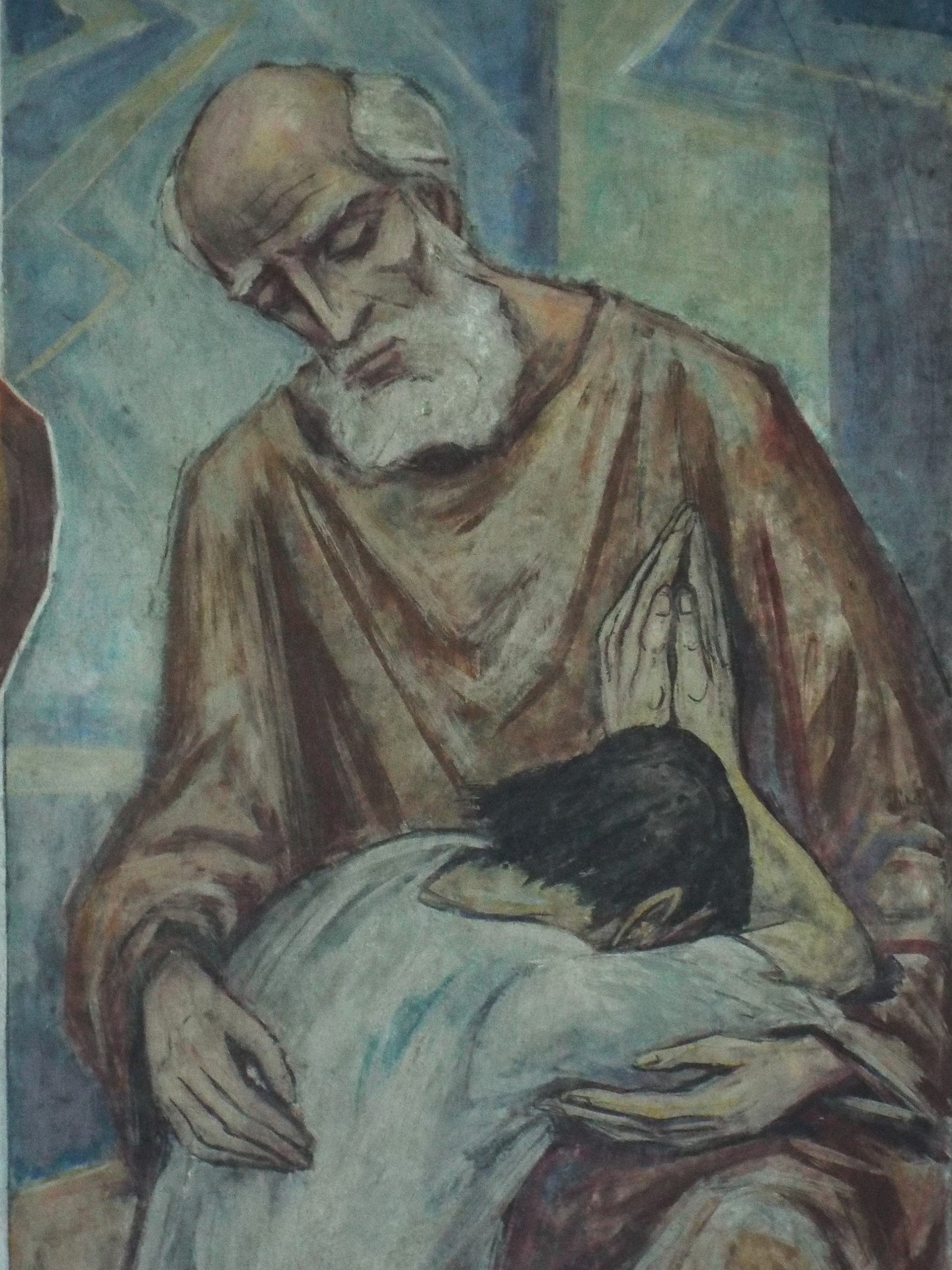
Intro
The Bible, a timeless repository of spiritual wisdom, is filled with narratives that transcend mere storytelling.
Among these, the parables of Jesus hold a special place, captivating the imagination and spirit of readers and listeners.
Parables in the Bible serve as concise, allegorical stories designed to convey deeper spiritual and moral truths. These narratives are as rich in meaning as they are in their capacity to inspire reflection and transformation.
Let’s embark on a journey to uncover the hidden layers within some of the most profound parables of Jesus, exploring their significance and how they continue to resonate in our lives today.

Understanding the Purpose of Parables in the Bible
Parables in the Bible serve a multifaceted purpose, ingeniously using simple, relatable stories to unravel complex spiritual truths. Jesus, in His wisdom, chose parables as His primary teaching method to communicate the profound realities of God’s kingdom, the essence of moral conduct, and the expectations He has for His followers.
By embedding these truths in familiar, everyday scenarios, He made His teachings accessible to everyone, regardless of their social status or educational background. This approach not only captured the imagination of His audience but also facilitated deeper engagement with His words.
The true genius of parables in the Bible lies in their ability to bypass the defenses of the listener. In a time and culture where direct criticism of societal norms or religious practices could lead to immediate rejection or worse, parables presented truth in a way that could be contemplated from a safe distance.
Listeners could see themselves and their lives reflected in these stories, often leading to a profound personal realization and transformation. The layers of meaning within each parable allowed individuals to derive personal lessons relevant to their unique life situations, creating a dynamic and personal interaction with scripture.
Furthermore, the open-ended nature of parables in the Bible invites continuous exploration and interpretation. They do not dictate a single, unchangeable lesson but rather encourage an ongoing dialogue between the text and the reader.
This enduring quality ensures that the wisdom of the parables remains relevant and impactful, guiding countless generations in their spiritual journey and moral decision-making.
Through these narratives, Jesus continues to speak to the hearts of people today, just as He did centuries ago.

The Parable of the Good Samaritan – A Lesson in Compassion
In this moving narrative, a traveler falls victim to thieves, left beaten and on the verge of death.
The unexpected hero of the story, a Samaritan—who by societal norms, should have been the least likely to assist, given the deep-seated prejudice between Jews and Samaritans—breaks these barriers with his act of kindness.
Unlike the priest and Levite who choose to ignore the suffering man, the Samaritan is moved with compassion. He not only tends to the man’s wounds but also ensures his recovery by taking him to an inn and covering his expenses.
This parable delves into the essence of true compassion, illustrating that it knows no bounds of ethnicity, religion, or social standing. It calls into question the societal norms and prejudices that often dictate our actions, urging us to redefine who our neighbor truly is.
By portraying the Samaritan as the embodiment of love and mercy, Jesus challenges us to extend our kindness beyond the confines of our comfort zones and prejudices.
In essence, the parable emphasizes that compassion should not be selective but universal.
It serves as a powerful reminder that our actions towards others, especially those in dire need, reflect our understanding and commitment to the teachings of Jesus.
Through the example of the Good Samaritan, we are encouraged to act with unwavering kindness and mercy, embodying the love that transcends all human-made divisions.

The Parable of the Prodigal Son – Understanding Forgiveness and Redemption
The Parable of the Prodigal Son unfolds with a young man demanding his inheritance early, only to squander it in reckless living.
Destitute and despondent, he decides to return to his father, expecting condemnation but hoping for at least a servant’s mercy.
Instead, he is met with an outpouring of love and forgiveness, as his father welcomes him back with open arms, celebrating his return as if he were welcoming a king.
The father’s response symbolizes the unconditional love and forgiveness that God extends to us, regardless of our past mistakes.
This parable also brings to light the bitterness of the elder brother, who perceives his loyalty as overlooked in the face of his brother’s celebratory return. This aspect of the story probes the human condition, revealing how easily we can harbor resentment, especially when we compare our journey with others.
It challenges us to reflect on our own capacity for forgiveness and grace, urging us to rejoice in the redemption of others as much as our own.
At its core, this parable illuminates the path to reconciliation and the transformative power of forgiveness. It teaches us that repentance opens the door to a renewed relationship, not just with God but with those around us.
Through the lens of the prodigal son and his family, we are reminded of the strength found in humility, the beauty of second chances, and the liberating joy that comes from embracing forgiveness.
Through this narrative, parables in the Bible illustrate the profound depths of love and redemption that are available to all, inviting us to return home to the open arms of grace.

The Parable of the Mustard Seed – The Power of Small Beginnings
In the telling of the Parable of the Mustard Seed, we find a profound metaphor for growth and potential within the kingdom of God. Jesus likens the kingdom to a mustard seed, which, despite its modest size, sprouts and becomes a tree so large that the birds perch in its branches.
This narrative highlights the incredible potential inherent in even the smallest of beginnings. It speaks to the heart of anyone who has ever doubted the significance of their contributions or the impact of their faith.
This parable teaches us that greatness often starts from the smallest of seeds, whether that be a kind act, a word of encouragement, or the smallest measure of faith.
It reassures us that from what may seem inconsequential at first, substantial and impactful outcomes can emerge.
The imagery of the mustard seed growing into a tree where birds find refuge beautifully illustrates how our actions, inspired by faith, can provide shelter and support to those around us, contributing to a larger ecosystem of kindness, support, and community.
Moreover, this parable serves as a beacon of hope and encouragement, urging us to press on in our endeavors, no matter how small or insignificant they might seem.
It assures us that with faith, persistence, and patience, the potential for expansive growth and influence is within our grasp.
In the economy of God’s kingdom, every act of faith, no matter how small, is significant and can lead to results beyond our imagination.

The Parable of the Talents – Encouraging Responsible Stewardship
In the narrative of the Parable of the Talents, a master prepares for a journey and entrusts his property to his servants according to their abilities. Upon his return, the master assesses what each servant has done with the talents given to them.
Those who have invested wisely and increased their talents are rewarded, while the servant who did nothing but hide his talent is reprimanded.
This story, one of the most compelling parables in the Bible, underscores the expectation for us to engage actively and wisely with the resources and abilities we have been entrusted with.
The message woven into this parable extends beyond financial stewardship, touching every facet of our lives. It challenges us to reflect on our personal gifts, talents, and the time we have been given.
Are we investing them in a manner that contributes to our growth and the betterment of those around us?
Or are we, out of fear or complacency, burying them, thus wasting potential opportunities for impact and improvement?
This narrative pushes us to confront our attitudes towards responsibility and accountability. It is a call to action, urging us to make the most of our innate abilities and the opportunities that come our way.
In doing so, it emphasizes the importance of proactive engagement in our personal, professional, and spiritual lives. Through the lens of this parable, we are reminded that responsible stewardship is not just an expectation but a vital component of a fulfilled and purpose-driven life.

The Parable of the Sower – Reflecting on Reception to the Word
The Parable of the Sower presents a vivid illustration of a sower scattering seeds across different types of ground, each representing varied responses to the word of God.
Some seeds fall along the path, where they are quickly snatched away. Others land on rocky ground or among thorns, where they initially take root but soon wither under adversity or are choked by life’s distractions.
Yet, there are those that fall on good soil, thriving and producing a bountiful harvest.
This parable, a cornerstone among parables in the Bible, compels us to introspect about the state of our own hearts.
Are we like the path, hardened and unresponsive?
Do we resemble the rocky ground, enthusiastic but lacking depth?
Perhaps we identify with the thorny ground, overwhelmed by worries and material pursuits. Ideally, we strive to be the good soil, fertile and prepared, where the seeds of faith can grow deep roots and yield an abundance of spiritual fruit.
This narrative drives home the importance of being open and receptive to spiritual teachings.
It underscores the need for perseverance and resilience in the face of challenges, as well as the vigilance required to guard against the distractions that can detract from our spiritual growth.
Through this parable, we are invited to reflect on our personal spiritual journey, encouraging us to nurture a heart that is receptive to divine truths, allowing them to transform us from within.
As we ponder on this parable, let us consider what adjustments we might make in our lives to cultivate a fertile, receptive heart, ready to receive and multiply the gifts sown within us.

Parables in the Bible as Tools for Modern Reflection
In our fast-paced, modern world, the ancient parables in the Bible continue to offer profound insights and guidance. These timeless stories, through their simplicity and depth, prompt us to examine our lives, our choices, and our values.
They act as mirrors, reflecting the complexities of human nature and the eternal truths that underpin our existence. By engaging with these parables, we are afforded the opportunity to pause and ponder the bigger questions of life, morality, and our relationship with the divine.
Each parable, rich in symbolism and meaning, invites us into a space of contemplation and self-discovery. They challenge us to look beyond the surface, encouraging a deeper understanding of ourselves and the world around us.
Through the lens of these stories, we are urged to confront our prejudices, reevaluate our priorities, and consider the impact of our actions on ourselves and others. This introspection can lead to transformative change, guiding us towards a more compassionate, empathetic, and fulfilling life.
Furthermore, parables in the Bible serve as a bridge, connecting the wisdom of the past with the challenges and dilemmas of the present day. They remind us that, despite the passage of centuries, the human condition remains largely unchanged.
The struggles, hopes, and aspirations that these narratives explore are as relevant today as they were when first told. By revisiting these parables, we tap into a wellspring of wisdom that empowers us to navigate the complexities of modern life with grace and discernment.

TLDR
The parables in the Bible, especially those shared by Jesus, are far more than simple tales. They encapsulate profound insights into human nature, morality, and divine principles, all through relatable, everyday stories.
Take, for example, the Parable of the Good Samaritan, which transcends cultural and ethnic boundaries to preach universal compassion.
Or the Parable of the Prodigal Son, which delves into forgiveness and the joy of redemption, demonstrating the boundless grace available to us.
Similarly, the Parable of the Mustard Seed and the Parable of the Talents both offer motivational lessons on growth, potential, and the importance of diligent stewardship over the resources and talents entrusted to us.
Meanwhile, the Parable of the Sower encourages introspection about our receptiveness to spiritual truths and the condition of our hearts.
Together, these stories and others like them in the scriptures provide invaluable guidance for navigating life’s challenges with wisdom, empathy, and a deeper connection to the spiritual.
As we engage with these parables, we’re invited into a process of reflection and self-examination, one that not only sheds light on our personal journey but also connects us with the enduring wisdom of the ages, offering direction for a life lived in alignment with profound, eternal truths.
